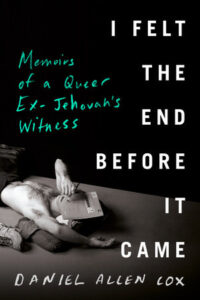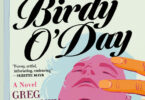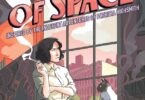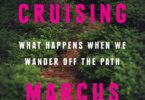Daniel Allen Cox, I Felt the End Before It Came: Memoirs of a Queer Ex-Jehovah’s Witness (Penguin Random House Canada, 2023), 240pp., $32.95.
Daniel Allen Cox’s memoir I Felt the End Before It Came is an inditement of the Watchtower Society and the Governing Body of the Jehovah’s Witnesses (JWs). He writes incisively and wryly about being forced out of the closet and the Kingdom Hall at 18 years old. JWs who are familiar with the Watchtower Society’s condemnation of homosexuality will find Cox’s story sadly familiar. His howl of rage, though, may shock others. Cox colours outside the lines of the memoir formula, jumping around chronologically and from tenet to tenet, but his off-roading works, mining rich rewards.
Cox opens with a description of his revelatory baptism at age 13, which took place in an inflatable Canadian Tire pool inside a minor-hockey-league arena at the Ottawa 1989 district convention:
I shivered in the waist-deep water, marvelled at the utter cheapness of the pool,
and thought, This must be the way to Paradise. Two hunks in clingy swimwear
and white T-shirts grabbed and dunked me. Later, when friends and family asked if I’d felt anything, I said I did, but it wasn’t the feeling they thought it was.
His wryness informs and charms the reader, which makes Cox’s self-aware account of being outed at 18 years old even more unsettling. While bowling with a fellow JW, Cox said her boyfriend was handsome. A day later, his congregation’s presiding elder called, in an odd move, inquiring if Cox was a “homosexual.” In routine JW protocol, elders call Witnesses before an elders judiciary committee to explain their wrongdoing, usually behind closed doors. Cox confessed his homosexual proclivities in clear terms, but the elder cut him off, presenting him with two options—disfellowship or disassociation.
The Watchtower Society disfellowships more serious transgressors. This entails excommunicating a Witness from the JW community, which often means they lose their entire social support network. Congregants treat the apostate like they are dead, and do not speak to them for a year. The elders view this alienation as a kindness, teaching that a Witness can return after penitence.
Cox chose the voluntary disassociation as his exit, stage left. He proclaims himself unrepentant, departs and never returns. The elder ended the call on a chilling note, “I love you, be careful of AIDs.” Cox, as a rejoinder, sent him a confessional letter about his queer identity. This writing, he muses, is his best work, wishing he had kept a copy of the letter, written on looseleaf.
This anecdote sets the memoir’s tone, infuriating yet hilarious. Cox injects wider context by including other Witnesses’ coming-out stories and how he eventually reconnected with them. But when Cox left at 18, he couldn’t keep playing with The Sixth Sense, the inspired alternative rock band he formed with other JW’s at 16, although he remained friends with one bandmate for years afterwards. The ripple-effect of Cox’s disassociation is fascinating: some JW’s continued socializing with him; others remained aloof at the grocery store, while others shunned him completely.
I Felt the End Before It Came confronts a raft of Watchtower tenets, all spinning out of its view on homosexuality, the memoir’s raison d’être. He quotes The Watchtower publication, but one can easily Google this position quoting from Corinthians or Genesis or other obscure passages in the New World Translation of the Holy Scriptures, the Bible translation used by Jehovah’s witnesses.
Jehovah’s Witnesses call their religion the Truth, the one true way everyone need follow. All other religions will pay at the deadline of Armageddon. Witnesses believe in heaven, but one where only 144,000 chosen members will rise after Armageddon. These members simply know who they are; nobody contests their status. With the apocalypse, God means to wipe non-followers and the current world system, across the board, governmental and religious, the devil and his legions, into non-existence or destruction. Remaining faithful followers will rebuild Earth into a paradise over 1,000 years. Any deceased JW’s will rise from the dead, fresh and young, and help with this extreme reno. Thus, Witnesses, deeply instilled with a belief in impending Armageddon that is inculcated as early as possible, feel dutybound to convert neighbours and go door-to-door, distributing Awake! and The Watchtower pamphlets in order to save as many lost souls as possible.
The Watchtower Society condemns homosexuality and non-heteronormative relationships as unacceptable to the creator. At the same time, it claims not to encourage prejudice, hate crimes or any mistreatment of homosexuals. Watchtower publications consistently claim if you are homosexual, you can pray and study the Bible to get straight—or leave the religion, a method amounting to gruelling Bible-study conversion therapy.
But Cox hits his stride at the centre of the maelstrom (male-storm?) about halfway through the book, describing his time teaching English in Krakow, Poland. Here, the memoir gels—his struggle with closeted queerness, teaching English, learning Polish, leaving an ex-boyfriend, and shedding Watchtower Society programming. The author recalls how the new language allowed him to shuck the yoke of Watchtowers beliefs drilled into him since birth. During this formative period, Cox penned the novella Tattoo This Madness In, an angry firebrand of a yarn about disfellowshipped and disenfranchised Witnesses, published in 2006 by Ottawa’s Dusty Owl Press. Imagine a Greg Araki film about a religious cult. Cox surprised himself with his own anger:
Up until that time in Poland, I’d done everything to prevent myself from acknowledging my anger and its rightful place in my life … I’d made my novella characters so different from myself that I had difficulty relating to anything in their struggles around leaving the Jehovah’s Witnesses. I sabotaged my chance for the story to be therapeutic. When it came out a year later … all anyone wanted to know about was my personal experiences, and I’d shoot back defensively, “But what about these fucked up Floridians I wrote about?” It’s a lesson that didn’t stick … The book was bursting with religion yet gave me little pause to think about my own religious experiences growing up.
His anger sears the memoir, along with a dawning discovery. Cox’s deprogramming from being a JW would be a lifelong process.
Elsewhere in the book, he jumps around, seemingly finding his voice in blinding anger. He painfully recalls hanging out with his out-of-the-closet Aunt Louise (Lulu) for many years. Cox realizes that had he come out to Lulu earlier, he would have found much-needed support. Then he moves onto to drugging and boozing at 18 years old and going to work with his fingers stained with hash. Cox describes pre-adolescent years with his dysfunctional mom (a devout Witness) and dad (not devout). He explores growing up in Montreal and, alternately, being in his mid-twenties, drunk on newfound freedom. Then, there’s his stint in New York City as a starving writer, hustler, model and pornstar, giving the finger to Mayor Rudy Giuliani who was cracking down on vice. Cox describes visiting family in Florida, the baseline for his quieter family life. It’s all dizzying but feels necessarily cathartic.
Cox joins a courageous tradition of other ex-Jehovah’s Witness memoirists and novelists writing about leaving the Kingdom Hall, giving the thumb, or finger, to the Watchtower Society. He quotes from Amber Scorah’s 2019 Leaving the Witness: Exiting a Religion and Finding a Life, about being a third-generation JW and leaving her marriage and the congregation. In some respects, Cox follows the trail that Canadian-American Scorah has blazed. His work is part of a rich collection of work by notable fire-starting contributors who endured this traumatic process, such as Scott Terry’s 2012 memoir Cowboys, Armageddon, and the Truth: How a Gay Child Was Saved from Religion and Jennifer LoveGrove’s 2013 novel Watch How We Walk, regarding a girl growing up in a doomed JW marriage.
Kyria Abraham’s wickedly humorous 2010 I’m Perfect, Your Doomed: Tales from a Jehovah’s Witness Upbringing describes parrying a disastrous marriage, becoming a cutter and her disfellowshipping. Where Abraham applied dark-as-ink humour, Cox employs nod-and-wink wryness. He makes jokes at the Watchtower Society’s expense, jabbing at their long-held belief that Armageddon is imminent, but has continually failed to materialize. The Watchtower Society has moved the deadline several times since 1914. They infamously predicted the world would end in 1975. In a doomsday fervor, some congregation members printed “Survive to 75” T-shirts and gladly gave up their worldly possessions since the end was supposed to be nigh (Spoiler alert: The world didn’t end then, nor did it with Y2K, as was also predicted.).
Cox chooses his weapons, letting them loose with urgency, using the techniques of memoir, fiction, essay-writing, and nonfiction. His non-linear, form-shifting style may not work for some readers, but for those it does, Cox reveals veritable treasures of hope, and hideous truths. Readers must strap in for this detonation of Watchtower Society tenets, one loud refutation after another, listing grievances and inflicted wounds. I Felt the End Before It Came is a kaleidoscopic account of Cox’s disenfranchisement. This is one queer, decidedly ex-Witness who howls, but ably.
…
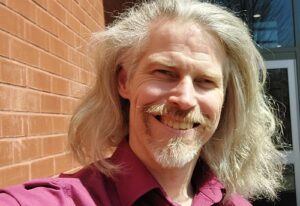 James K. Moran’s speculative fiction and poetry have appeared in Burly Tales, Glitterwolf, On Spec, and elsewhere. His fiction collection Fear Itself is out from Lethe Press, which previously published his horror novel Town & Train. Find him at jameskmoran.blogspot.ca, @jkmoran Twitter/X, jamestheballadeer Instagram, and reviewing for Arc Poetry Magazine, Plenitude, and Strange Horizons. Moran lives on the unceded Territory of the Anishinabe Algonquin Nation, now called Ottawa, a word derived from the Algonquin adawe, meaning “to trade.”
James K. Moran’s speculative fiction and poetry have appeared in Burly Tales, Glitterwolf, On Spec, and elsewhere. His fiction collection Fear Itself is out from Lethe Press, which previously published his horror novel Town & Train. Find him at jameskmoran.blogspot.ca, @jkmoran Twitter/X, jamestheballadeer Instagram, and reviewing for Arc Poetry Magazine, Plenitude, and Strange Horizons. Moran lives on the unceded Territory of the Anishinabe Algonquin Nation, now called Ottawa, a word derived from the Algonquin adawe, meaning “to trade.”

